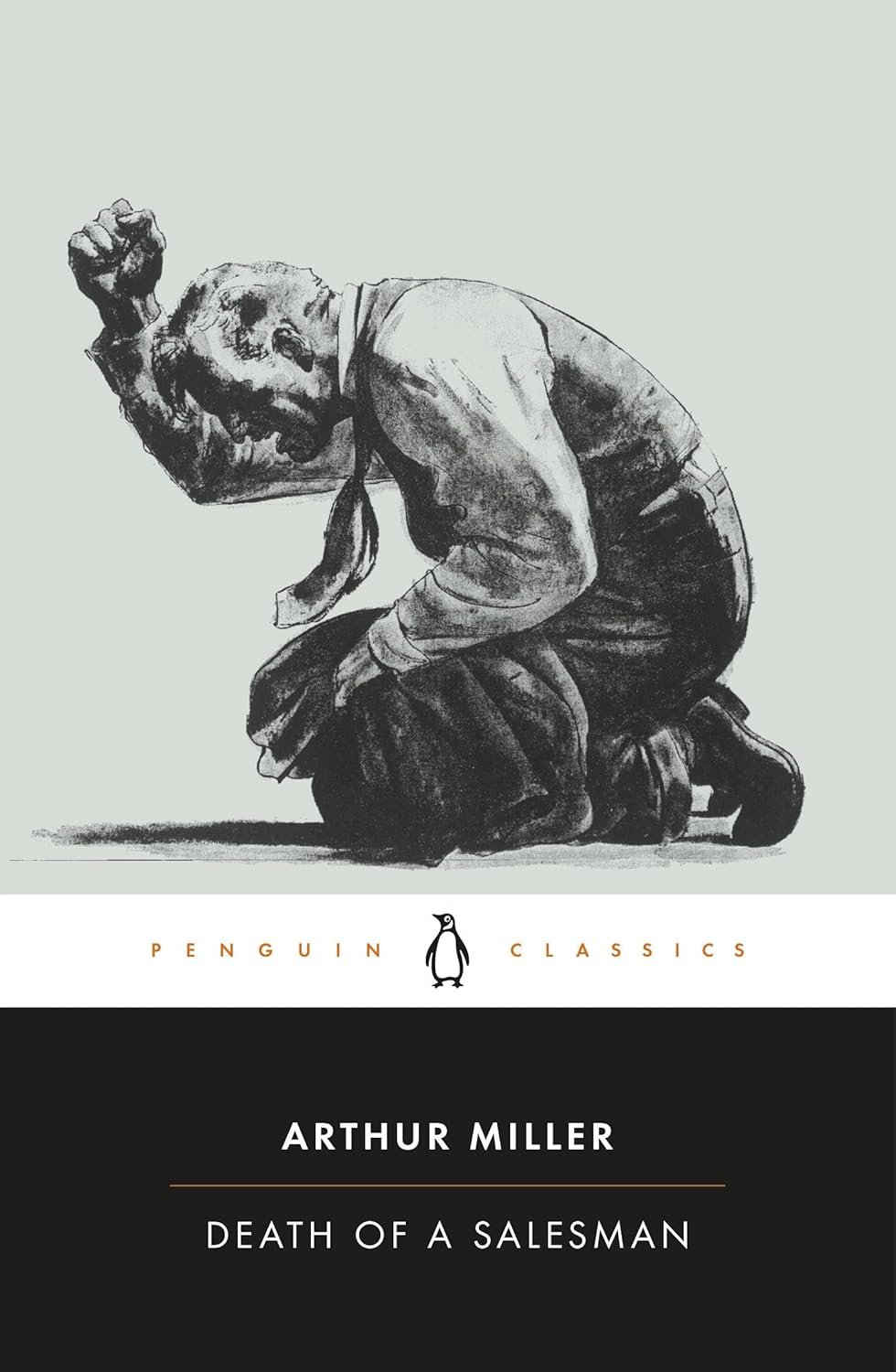A Journey Through the Heart of Dreams: My Thoughts on Death of a Salesman
When I first picked up Arthur Miller’s Death of a Salesman: Certain Private Conversations in Two Acts and a Requiem, I was drawn not just by its Pulitzer Prize accolades, but by the haunting promise of a dream deferred. Like many, I’ve often pondered the true cost of the American Dream, a theme that Miller wrestles with so powerfully in this compact yet deeply emotive piece. It’s a reflection that transcends time, resonating with the struggles we all face in pursuit of our aspirations.
At the heart of this tragedy is Willy Loman, a man beleaguered by unfulfilled dreams, whose life is a tapestry of longing, disillusionment, and the relentless pursuit of validation. As Willy grapples with his worth at the age of 63, the weight of his fantasies clashes with the stark reality of his failures. His relationships, most poignantly with his son Biff, are fraught with pain and the burden of expectations that he cannot shake. Miller crafts Willy not just as a character, but as a representation of every person who has felt the sting of inadequacy and the societal pressures woven into the fabric of success.
What struck me most profoundly was Miller’s masterful use of non-linear narrative. By intertwining past and present, the play becomes a vivid recollection of Willy’s psyche—a dive into the memories that haunt him, shaping his present-day actions and despair. It reminds us how our own pasts can cloud our vision, influencing our decisions in ways we might not fully understand. The dialogue sparkles with raw emotion; Miller’s words breathe life into Willy’s dreams and delusions, painting a tragic portrait of a man lost to his aspirations.
One quote that resonates with me is Willy’s lamentation, “The mind is not a book, to be opened at will and examined.” It speaks to the complexity of human thought and emotion, threading through the play’s broader themes of identity, failure, and the consequences of blind ambition. This line encapsulates the essence of Willy’s tragic flaw—a man who cannot separate his self-worth from societal expectations.
The pacing of the narrative feels precise, underscoring Willy’s spiraling descent. As I turned each page, I felt a tightening in my chest. It’s a stark reminder of the fragility of dreams, and how easily they can shatter. This is not merely a story of a salesman’s demise, but an exploration of the human condition, the fight for significance, and the challenge of self-identity amid societal expectations.
I recommend Death of a Salesman to anyone seeking a profound exploration of ambition and identity. The play’s relevance echoes even today, as we navigate our own dreams in a chaotic world. Whether you’re an aspiring writer, a student of literature, or simply someone curious about the intricacies of human emotion, this classic won’t just engage you; it may also challenge your perception of success and fulfillment.
Reading Miller’s work left me contemplative, encouraging me to reflect on my own aspirations and the narratives we construct around success. It’s not just a play; it’s a poignant exploration of life itself. So, pour yourself a cup of coffee, find a quiet nook, and let the story of Willy Loman draw you in—it’s a journey worth taking.







